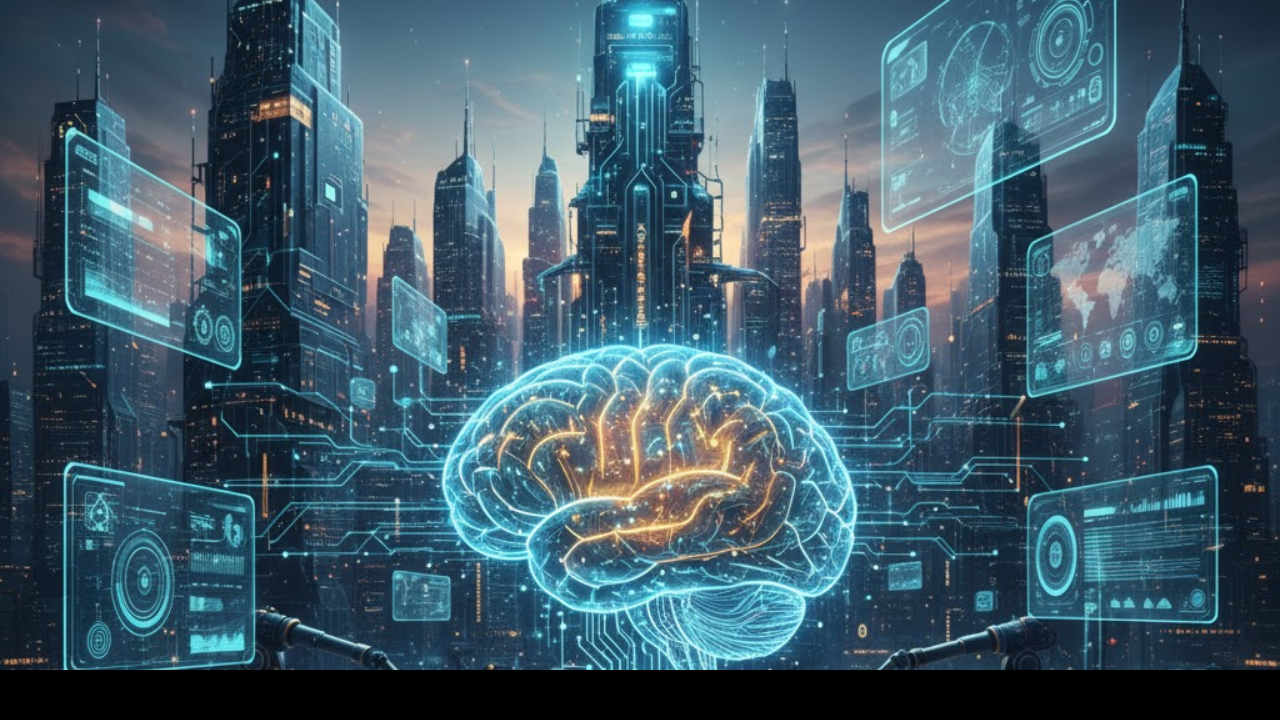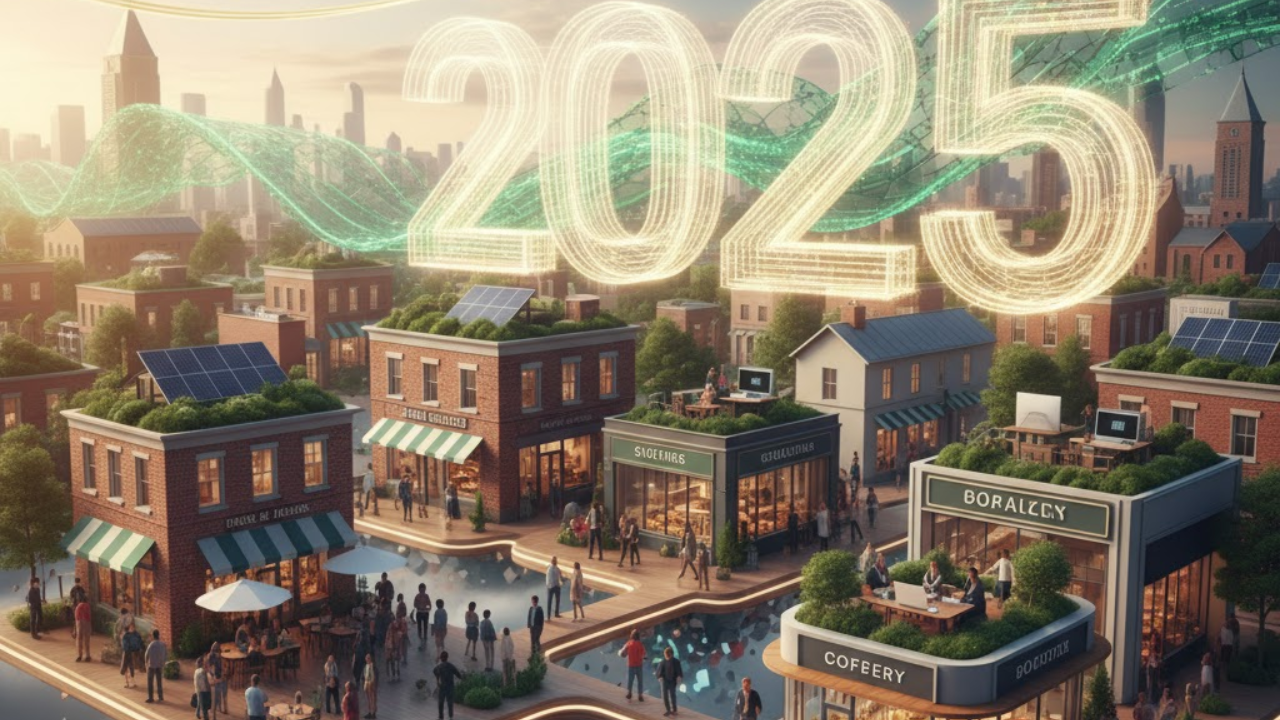
Post by : Naveen Mittal
The corporate world has entered its next evolutionary phase—hyperautomation. If automation was the industrial revolution of the 20th century, hyperautomation is the digital revolution of the 21st. It represents the fusion of artificial intelligence, robotics, data analytics, and machine learning into one powerful ecosystem—a self-optimizing enterprise that learns, adapts, and evolves on its own.
In 2025, hyperautomation is no longer a futuristic concept. From finance and healthcare to logistics and retail, companies are using AI to automate not just repetitive tasks, but entire decision-making processes. It’s the birth of the “intelligent enterprise,” where humans and algorithms collaborate to achieve efficiency, agility, and scale that were once unimaginable.
Traditional automation solved problems of repetition—processing invoices, handling transactions, generating reports. Hyperautomation, however, goes further. It combines:
Artificial Intelligence (AI) for reasoning and pattern recognition.
Machine Learning (ML) for predictive analytics.
Robotic Process Automation (RPA) for speed and accuracy.
Natural Language Processing (NLP) for communication.
Advanced analytics for decision-making.
These technologies work together to digitally replicate entire workflows—not just tasks. For example, an insurance company can now automate its claim processing from start to finish, with AI detecting fraud, RPA filing data, and analytics recommending policy adjustments.
The result? Businesses that no longer operate in reactive mode—they think, decide, and act proactively.
Hyperautomation is more than a buzzword—it’s a business necessity. Companies face shrinking margins, labor shortages, and rising operational costs. Automating workflows helps reduce human error, improve accuracy, and deliver services at scale.
But the real advantage lies in intelligence. AI systems can analyze millions of variables to suggest process improvements that human managers might never spot.
According to Gartner, organizations deploying hyperautomation at scale can achieve up to 30–50% operational cost reductions within three years, while also improving decision-making speed by over 60%.
In other words, automation isn’t just about doing things faster—it’s about doing the right things, smarter.
1. Banking & Finance
Banks now use AI to approve loans, detect fraud, and generate investment insights—all in seconds. Hyperautomation has slashed back-office costs and improved compliance through constant system monitoring.
2. Healthcare
Hospitals are deploying AI systems to manage patient records, schedule operations, and even assist in diagnostics. This frees doctors and nurses to focus on care rather than paperwork.
3. Manufacturing
Factories are integrating robotics with AI-driven quality control. Machines detect flaws in real time, adjust production parameters, and even reorder materials autonomously.
4. Retail & E-commerce
Hyperautomation powers inventory forecasting, customer personalization, and predictive logistics. Platforms can now deliver what customers want before they even ask.
Each of these examples highlights a broader shift—from manual decision-making to machine-assisted foresight.
While the promise of hyperautomation is immense, it raises a vital question—where do humans fit in?
The answer: at the intersection of creativity, strategy, and empathy. Machines may handle operations, but humans remain essential for innovation, ethical judgment, and leadership.
This transformation, however, demands a new kind of employee—someone who understands how to manage, train, and interpret intelligent systems. Businesses are therefore investing heavily in reskilling programs that teach employees to work alongside automation rather than fear it.
According to PwC, 74% of organizations implementing hyperautomation have parallel human development initiatives—ensuring people remain central to progress.
Hyperautomation isn’t plug-and-play—it’s a long, complex process. Companies face three major challenges:
Integration Overload: Legacy systems often resist automation. Integrating AI tools with outdated software requires time and expertise.
Data Quality: Poor data leads to poor intelligence. Enterprises must invest in cleaning, structuring, and governing their data to avoid biased or flawed decisions.
Security & Ethics: As automation grows, so does the risk of cyberattacks and misuse of AI. Companies must enforce ethical guardrails and transparency to maintain trust.
Despite these hurdles, firms that succeed in integrating hyperautomation holistically gain an almost unfair advantage: speed, precision, and adaptability that competitors can’t easily replicate.
Interestingly, hyperautomation is also playing a key role in sustainability. AI-driven monitoring systems can optimize energy use, reduce waste, and extend equipment life cycles.
For example, a logistics company using AI-powered route optimization can cut fuel use by 20%, while a manufacturer using predictive maintenance reduces resource waste by 30%. Automation and sustainability are no longer separate goals—they’re now part of the same intelligent design.
If 2020s were the decade of digital transformation, the 2030s will be the decade of digital autonomy. The next phase of hyperautomation will bring self-correcting, self-learning organizations that require minimal human intervention.
Imagine companies that can monitor their own performance, spot inefficiencies, and restructure workflows automatically. Factories that can reconfigure production lines when demand changes. Retail systems that reorder inventory based on customer sentiment trends.
That’s where hyperautomation is headed—a world where businesses don’t just react to change; they anticipate and adapt to it in real time.
Hyperautomation is not about replacing people—it’s about replacing inefficiency. It’s about creating a symbiotic relationship between human intelligence and artificial intelligence—where creativity meets computation.
In a world of shrinking attention spans and accelerating change, the enterprises that thrive will be those that build systems capable of learning faster than the market itself.
Welcome to the era of the intelligent enterprise—where machines handle the complexity, and humans reclaim the capacity to think.
Disclaimer:
This article is for informational and educational purposes only. The evolution of automation technologies is ongoing; readers should consult verified industry research and company reports for specific data or investment insights.

Small Businesses in 2025: Resilience in the Age of Uncertainty
In an era of inflation, digital disruption, and tight credit, small businesses are adapting through

Trade Wars 2.0: The Return of Protectionism and the New Shape of Globalization
Rising tariffs, tech rivalries, and new trade blocs are reshaping globalization. Here’s how the next

Hyperautomation: How Intelligent Enterprises Are Redefining the Future of Business
AI, automation, and analytics are merging to create hyperintelligent businesses that operate faster,

From ESG to ROI: How Sustainability Became a Smart Business Strategy
From compliance to strategy—ESG and circular economy models are now key drivers of profitability, re

Investing in Uncertainty: How Businesses Are Rethinking Growth in 2025
High interest rates, inflation, and shifting taxes are reshaping corporate investment strategies in

Labour Under Pressure: AI, Wages, and the New Skills Divide
AI is redrawing labor markets—raising wages for specialists, erasing routine jobs, and forcing a glo

America’s Big Bet on AI: Growth Engine or Risky Play?
America is placing its economic chips on AI. From data center-driven GDP to tech investment booms, s

Unroll Your Calm Easy Yoga Tips for Teens to Beat Stress and Stay Focused
Discover easy yoga tips for teens to reduce stress boost focus and stay calm daily with simple poses

Chhath Puja 2025 Devotion Rituals & Sun God Celebration Guide
Celebrate Chhath Puja 2025 with devotion fasting and rituals Discover Sun God prayers eco friendly t

Varinder Singh Ghuman India's First Vegetarian Bodybuilder & Bollywood Star
Discover the inspiring life of Varinder Singh Ghuman India s first vegetarian bodybuilder and actor

From Couch to Café Easy Ways to Style Knits and Loungewear for Any Occasion
Discover how to style knits and loungewear for any occasion Stay cozy confident and stylish from you

UE Dubai Students Shine at COP30 Simulation in Cairo, Showcasing Global Leadership in Climate Policy
University of Europe for Applied Sciences Dubai (UE Dubai) have taken centre stage at the COP30

Signs Your Gut Health May Be Slowing Your Weight Loss
Poor digestion can slow weight loss Learn the key signs your gut may be affecting metabolism and how

Keto Friendly Fruits Top 10 Low Carb Fruits for Weight Loss Success
Discover 10 keto friendly low carb fruits that support weight loss boost energy and keep your die

Rajvir Jawanda Life Career Music Hits & Tragic Accident Explained
Discover Rajvir Jawanda s journey from police aspirant to Punjabi music star his hits acting career